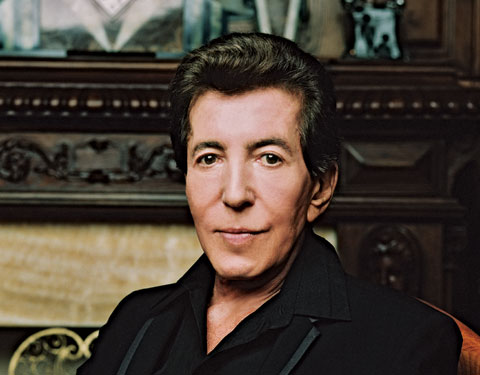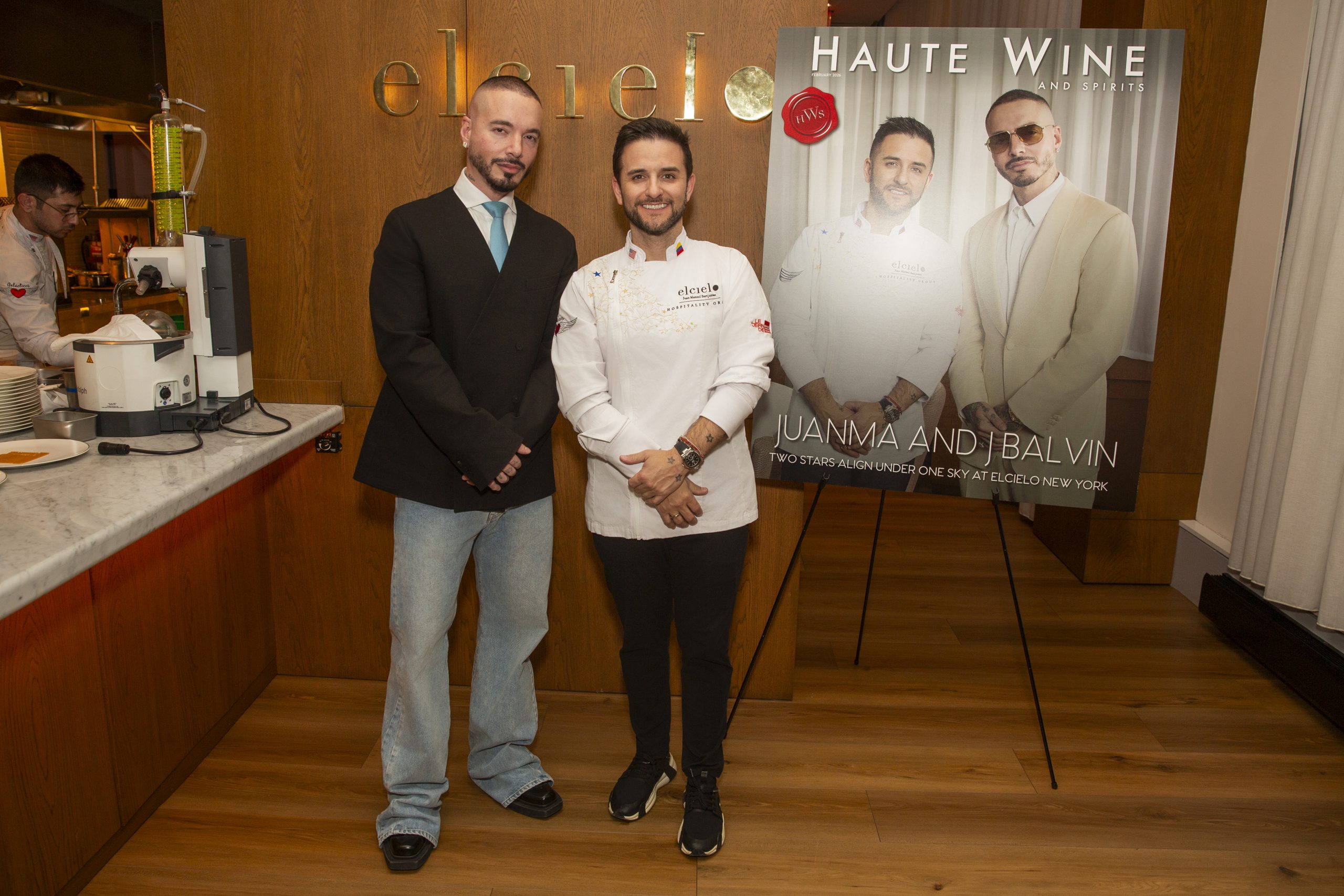Lasting Legacy: Al Malnik
Any true South Florida aficionado has heard the legend of Al Malnik. But to hear it from the man himself is the rarest of opportunities.
Interview by Kamal Hotchandani
Story by Benjamin Minkus
Photography by Brett Ratner

It is a success story that could have been written for Hollywood-imagine the movie trailer now. Alvin Malnik, the son of Russian Jewish immigrants, is born in the roughshod neighborhoods of working-class St. Louis, a teenage gang member who could have easily been eaten alive or fallen astray.
Fast forward to 1964. Malnik is now 31, a multimillionaire, and a well-connected lawyer with celebrity clients who dominate the entertainment business. As time progresses, Malnik transforms into shrewd businessman and a literal pioneer of the South Beach scene, with holdings in real estate and as founder of Miami Beach’s finest institution, The Forge-which would later be taken to new heights by his own son, Shareef, but only once the elder Malnik takes a unique opportunity to work with the Royal Family of Saudi Arabia in the 1980s.
Now it speeds up. Flash frames show Malnik with a slew of the big names across the years-from world-famous attorney and mentor Jake Ehrlich to Rat Pack stars Dean Martin and Sammy Davis Jr., to his first son, Shareef, and his “11th son,” famed director Brett Ratner, to a bevy of beautiful women and a host of others-until, suddenly, the camera pauses, and Malnik finds the love of his life-Nancy. Like clockwork, they fall for each other, marry, expand their family and watch their children grow, as a picturesque sunset fades over his sprawling Palm Beach mansion.
But success is never built overnight, and so for Malnik, no movie trailer could do justice to his life’s bountiful accomplishments. No, to get the real story-the story that cannot be told by any outsider-one must get the opportunity to sit down with the legendary Malnik, to bask in the glory of his opulent 35,000-square-foot Palm Beach home, and truly listen to the story of a man who built an empire out of a big heart and an unflappable will.
Chapter I St. Louis
“The early days in St. Louis were really two-fold,” Malnik says matter-of-factly of the blue-collar Midwest city. “One of depravation and one of family love. Depravation in the sense of material depravation-our family was very poor, we lived in a poor neighborhood. But there was a really good camaraderie among all of us poor kids because we used to play in the alley, and chase street cars, and do all the goofy things that kids do. Our main sports activity was cork ball, which they never play today, but we used to play in the street. It was not dangerous; everyone’s front door was left open because there was very little crime or robbery back in those days. I came from a very musical family-they were immigrants from Russia, including my dad’s brothers-and we all lived in the same neighborhood and they spoke Russian and Yiddish more than they spoke English. There were a lot of Italians in the neighborhood who spoke Italian rather than English. It was very ethnic in that regard. But it was really a lot of fun, it was memorable.”
[highlight_text] Luckily for Malnik, his well-connected relationships and reputation as a hard working, innovative business mind left him with several lasting friendships that helped shape new businesses. [/highlight_text]
Indeed, Malnik came to learn in his youth that success would never be handed to him on a silver platter. Instead, he learned, “It was very important to our parents that my brother and I be professional. That’s really practically all they cared about and we promised them faithfully we would do it-it was easier for my brother than it was for me-but nevertheless, I managed anyway.”
However, applying his motivation to worthwhile causes would wait awhile, as youthful indiscretions highlighted Malnik’s teenage years. A self-described “wild teenager,” Malnik was a gang member, pulling pranks and running amuck with a tough crowd of lower-class thugs. “But the activities of the gangs in those days do not at all relate to the activities of gangs today that would border on or include major criminality. Although, I must say, eventually, once I got out of the neighborhood, those who stayed, a healthy number, in retrospect, did spend quite a bit of time in prison for petty crimes,” he said.
A major turning point of Malnik’s upbringing occurred during high school, when his family moved from a four-family flat to the upstairs of a two-story flat-a minor improvement, but one which made a tremendous impact on the young Malnik. What ensued was a greater understanding of what he could do with his own massive potential.
“I met a new set of friends, and I finally met a lot of kids that were from a better economic situation than I was from, which really instilled a great desire to me to want to have that kind of a life and be able to acquire that kind of material benefits that those parents seemed to give those families. Unfortunately, my mother and father didn’t really assimilate into the American concept. They led kind of a secluded and a bit of a sheltered life, and were satisfied to stay in a lower economic stratum. They thought that the safety net for my brother and myself was that if we were doctors or lawyers, we would be able to make a living, which they weren’t always able to do.”
With his mind set, Malnik aimed for a career in law-with a detour along the way. Joining an ROTC program during his undergraduate studies, Malnik was obligated to spend two years as an Army officer in El Paso, Texas. With such calculated decision-making that flashed a maturity beyond his years, it was somewhat out of character that one major component of Malnik’s law studies was made on a spur-of-the-moment decision.
Chapter II Coming to Miami
“Not knowing any better, I got married, and we decided we didn’t want to go back to St. Louis. Neither of us had ever been to Florida or California, which we thought were the glory states-we thought, ‘This is where we need to be.’ We could get away from the cold weather, and the climate, and the regimentation of growing up in a conservative city like St. Louis. So we flipped a coin, and it came out Florida-this was 1956. I had benefits from the GI program, so I was able to register in law school at the University of Miami and I became a lawyer.”
As he toiled away in pursuit of his law degree, Malnik approached yet another turning point in his life with the birth of his first two children, including his first son, Shareef, who would later take over The Forge empire. By the time Malnik crossed the stage to receive his diploma as a graduate at the university in Coral Gables, “Shareef and his sister were born, saying ‘Hi, Daddy,’ to me as I walked across the stage with my diploma.”
Though post-graduation did not go according to plan (“I was disappointed because the guy I really liked so much in law school-we had always planned to be partners, we had won the moot court competitions, we were at the top of the class-opted not to do that,”) Malnik, with ample grit from his St. Louis upbringing, took a major risk in starting a practice in, of all places, South Beach.
“I opted to hang out at my shingle on Lincoln Road-605 Lincoln Road on Miami Beach-and I just remember sitting there with my feet on the desk most of the days.” It was during those dog days that Malnik began to build a name for himself as a top-notch attorney. In fact, says Shareef, “As a kid, you have a tendency to want to argue with your parents when you’re five years old. He wasn’t the easiest person to win an argument against.”
And, perhaps most importantly, the elder Malnik’s early days in law practice led to the beginning of a long-standing relationship with Jake Ehrlich, who at the time was perhaps the most famed defender in the United States. As a result of their close bond, Ehrlich put Malnik’s name and full-page photo on the inside cover of his enormously popular book, Never Plead Guilty, which put Malnik on the map around the country as one of the top young lawyers.
“I got a few cases, small cases, started acquiring a reputation as a result of winning them-they were the local bookmakers and all that-so I started a criminal practice, and I got highly recommended, and before you knew it, I had some substantial cases. I had met and participated in a couple of cases with a great lawyer that I admired, Jake Ehrlich, probably the best criminal lawyer in the country, and he was kind enough to care for me and take me on as a junior partner.”
With his career on the fast track to success, Malnik began to chase business pursuits out of his law practice, an idea that would pay off immediate dividends, and which would make a lasting impact on his children-one which is still felt to this day.
“Growing up in that brilliant environment, it has the same effect as law school,” Shareef says. “It changes the chemistry of your brain, makes you think outside the box, and hopefully I’ve adopted that and I try to think outside the box myself. Growing up with him, you learn integrity and ethics. You can’t learn that as an adult, you have to learn that at a young age. Buzz words like loyalty, doing the right thing, and dignity are really words that he lives by, even to his own detriment, he would never sacrifice his dignity or his honor.”












